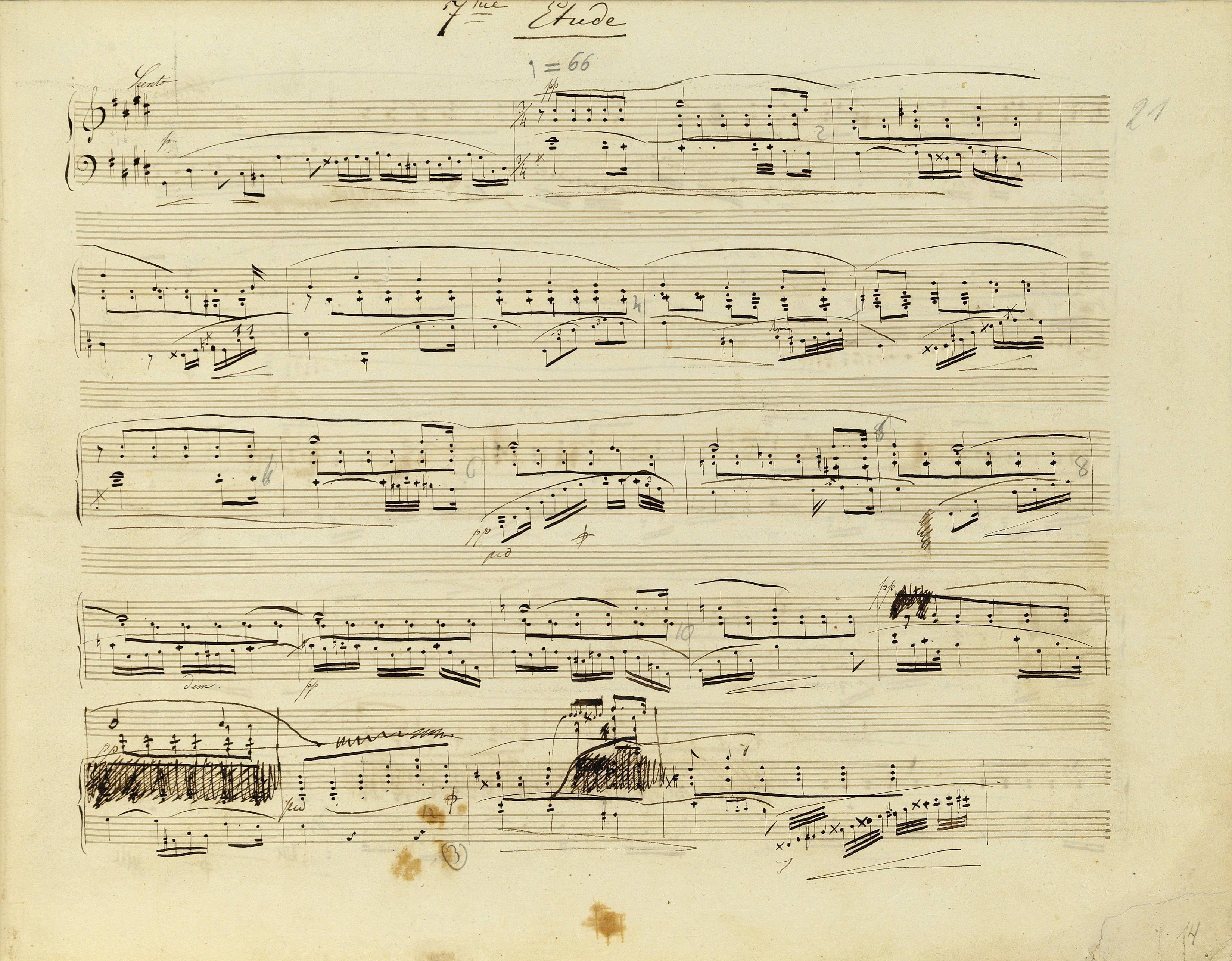Op. 2, Variations in B♭ major
Op. 10, 12 Etudes
Op. 11, Concerto in E minor
Op. 21, Concerto in F minor
Op. 22, Polonaise in E♭ major
Op. 24, 4 Mazurkas
Op. 25, 12 Etudes
Op. 26, 2 Polonaises
Op. 27, 2 Nocturnes
Op. 28, 24 Preludes
Op. 30, 4 Mazurkas
Op. 35, Sonata in B♭ minor
Op. 50, 3 Mazurkas
Op. 63, 3 Mazurkas
Op. 64, 3 Waltzes
(Op. 4), Sonata in C minor




Op. 25 No 7, Etude in C♯ minor
In GC (→GE1) and EE there is no  returning f
returning f at the beginning of the 2nd group of semiquavers of the introduction, which almost certainly corresponds to the notation of [A]. It is a very typical mistake of Chopin – cf., e.g., the Nocturne in C
at the beginning of the 2nd group of semiquavers of the introduction, which almost certainly corresponds to the notation of [A]. It is a very typical mistake of Chopin – cf., e.g., the Nocturne in C minor, Op. 27 No. 1, bar 83, or the Impromptu in A
minor, Op. 27 No. 1, bar 83, or the Impromptu in A major, Op. 29, bar 71. The sign was added in the proofreading of FE, most probably by Chopin, as well as in GE2 (→GE3).
major, Op. 29, bar 71. The sign was added in the proofreading of FE, most probably by Chopin, as well as in GE2 (→GE3).
Compare the passage in the sources »
category imprint: Interpretations within context; Differences between sources
issues: Errors in EE, Omissions to cancel alteration, Errors in GE, GE revisions, Authentic corrections of FE
notation: Pitch

